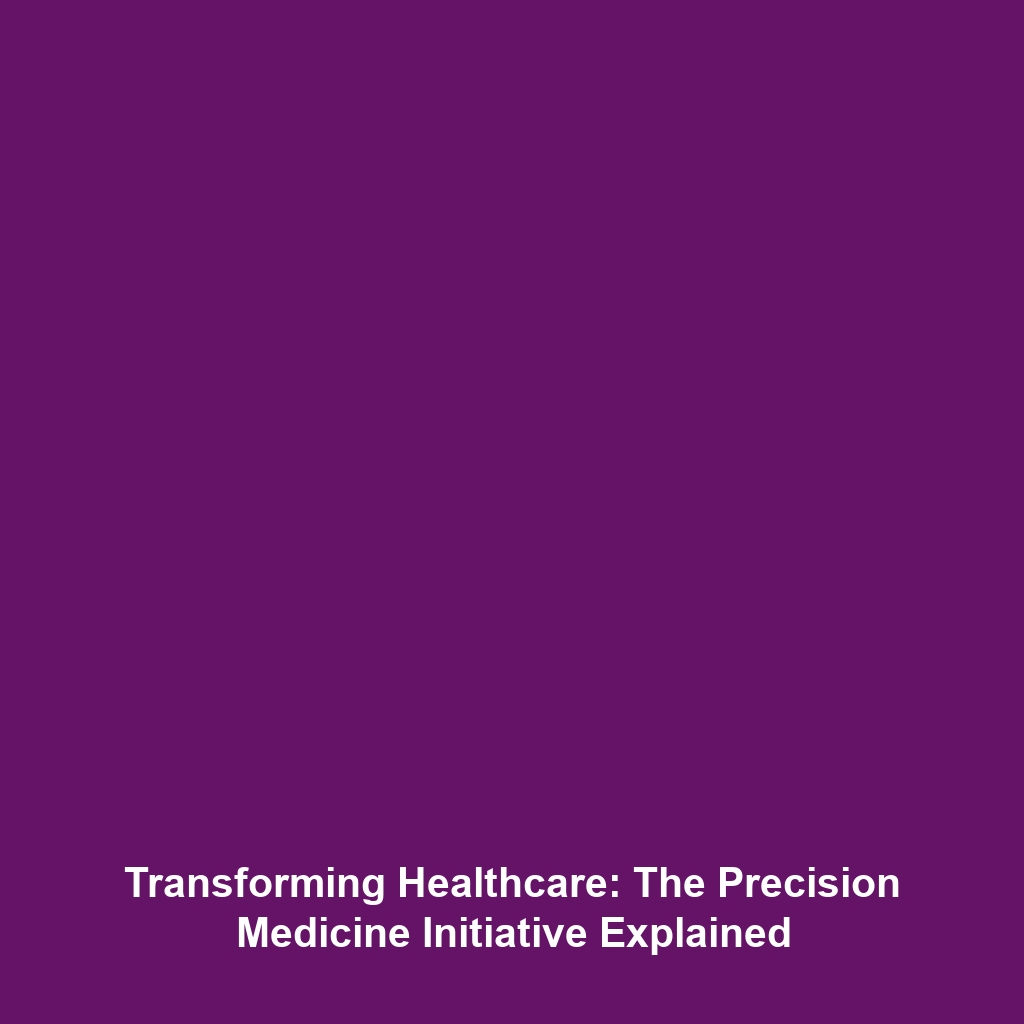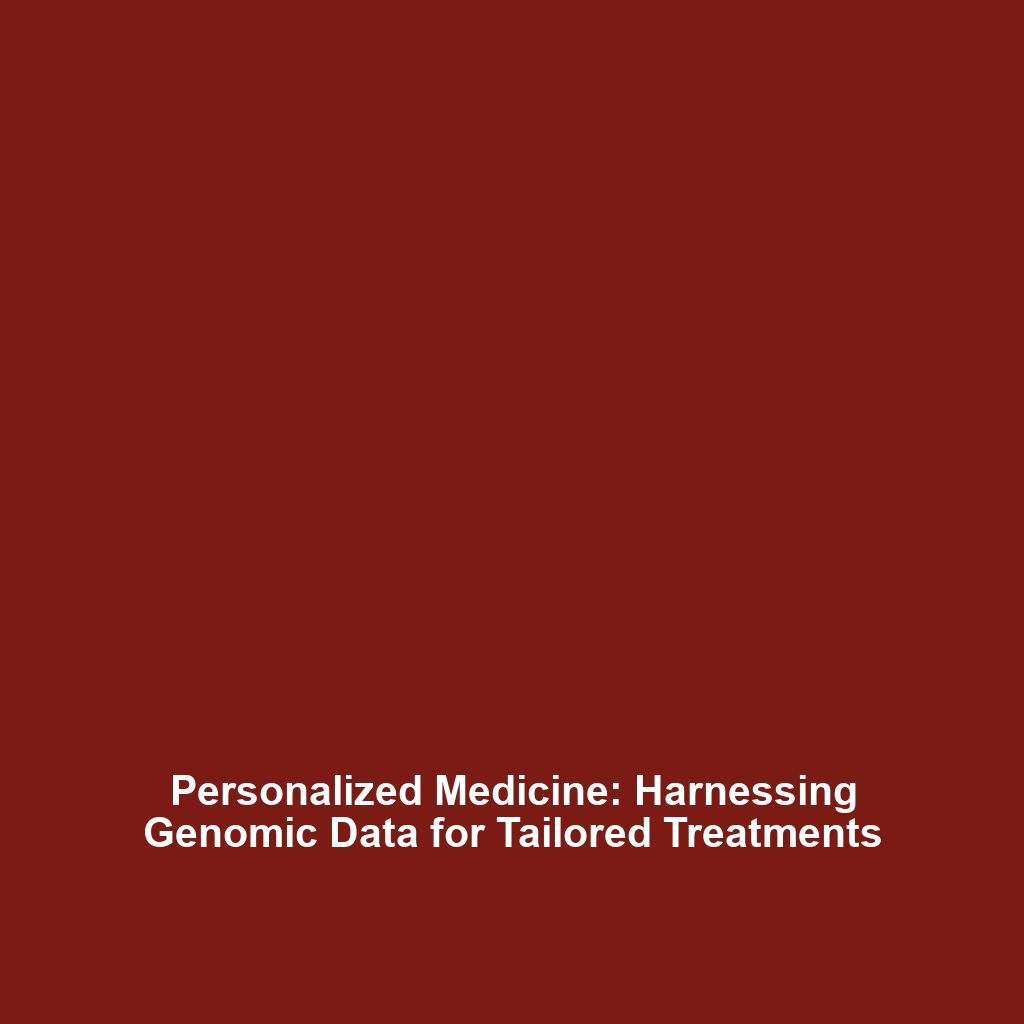Precision Medicine Initiative: Unraveling the Future of Personalized Healthcare
The Precision Medicine Initiative (PMI) represents a groundbreaking approach to healthcare that tailors treatment to individual characteristics, such as genetics, environment, and lifestyle. Emerging from the foundational work of the Human Genome Project, which sequenced and mapped the human genome, PMI exemplifies a shift towards personalized medicine that promises not only to revolutionize the healthcare landscape but also to enhance patient outcomes through targeted therapies.
Key Concepts of Precision Medicine Initiative
The PMI introduces several key principles that are integral to understanding its role in modern medicine:
- Genomic Data Utilization: Leveraging genomic information enables healthcare providers to predict disease susceptibility and customize treatment plans.
- Integrative Research Approaches: Collaborative efforts between diverse fields—such as genomics, bioinformatics, and clinical research—drive the success of PMI.
- Patient-Centric Care: PMI emphasizes the importance of considering individual patient backgrounds, leading to more effective treatments.
Applications and Real-World Uses
The implications of the Precision Medicine Initiative are vast, with numerous real-world applications demonstrating its relevance:
- Cancer Treatment: PMI facilitates the use of genomic profiling in oncology, allowing for targeted therapies based on an individual’s tumor genetics.
- Cardiovascular Health: By assessing genetic predisposition to heart diseases, healthcare providers can implement preventative measures tailored to patients.
- Pharmacogenomics: Understanding how genes influence individual responses to drugs helps in prescribing the right medication at the right dose for optimal effectiveness.
Current Challenges in Precision Medicine Initiative
Despite its promise, the Precision Medicine Initiative faces several challenges:
- Data Privacy Concerns: Protecting sensitive genomic information from unauthorized access is paramount.
- Healthcare Disparities: Ensuring equitable access to precision medicine across diverse populations remains an obstacle.
- Integration of Genomic Data: Harmonizing vast amounts of genomic data with clinical information continues to be complex.
Future Research and Innovations
Looking ahead, innovations in the Precision Medicine Initiative could reshape the landscape of healthcare:
- Advancements in AI and Machine Learning: Predictive analytics may enhance the accuracy of genomic interpretations.
- Gene Editing Technologies: Techniques like CRISPR could revolutionize disease treatment by directly targeting genetic abnormalities.
- Expansion of Biobanks: Collecting and analyzing diverse genomic samples will improve research and therapeutic approaches.
Conclusion
The Precision Medicine Initiative symbolizes a pivotal evolution in healthcare, particularly as it relates to the foundational work of the Human Genome Project. By fostering personalized treatment methodologies, PMI holds the potential to significantly advance patient care. Continued research and investment in this field are essential. For further exploration of related topics, consider reading about the Human Genome Project and genomic data privacy challenges.


